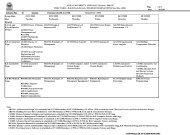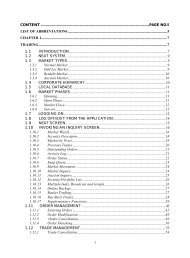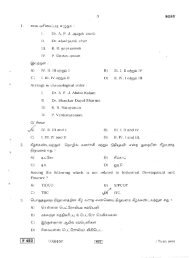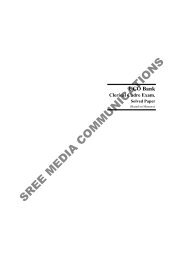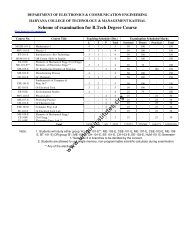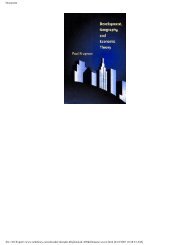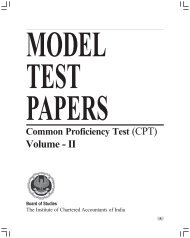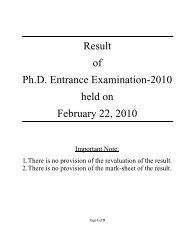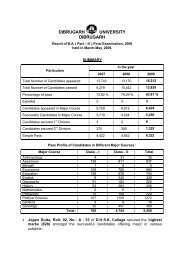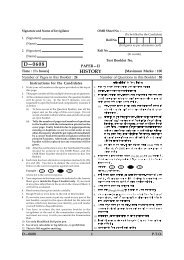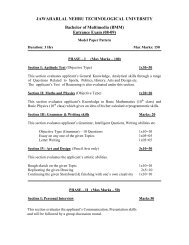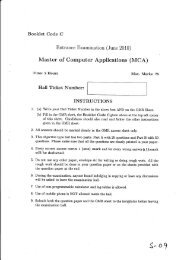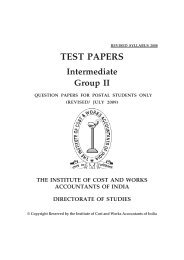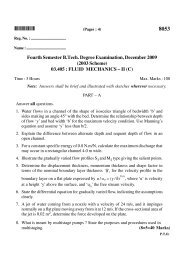UNIT – I Lesson 1 HRM – AN OVERVIEW Lesson Outline Nature of ...
UNIT – I Lesson 1 HRM – AN OVERVIEW Lesson Outline Nature of ...
UNIT – I Lesson 1 HRM – AN OVERVIEW Lesson Outline Nature of ...
You also want an ePaper? Increase the reach of your titles
YUMPU automatically turns print PDFs into web optimized ePapers that Google loves.
2. Patterned interview<br />
In this type <strong>of</strong> interview, the pattern <strong>of</strong> the interview is decided in advance. What<br />
kind <strong>of</strong> information is to be sought or given, how the interview is to be conducted and how<br />
much time is to be allotted, all these are worked in advance. In case the interviewer drifts<br />
he or she is swiftly guided back to structural questions. Such interviews are also called as<br />
standardized interviews.<br />
3. Depth interview<br />
Under this method, the interview tries to portray the interview in depth and detail.<br />
Accordingly the life history <strong>of</strong> the applicant along with his or her work experience,<br />
academic qualifications, health, attitude, interest and hobbies are all analysed.<br />
4. Stress interview<br />
Such interviews are conducted for the jobs which are to be performed under<br />
stressful conditions. The objective <strong>of</strong> stress interview is to make deliberate attempts to<br />
create stressful or strained conditions for the interview to observe how the applicant<br />
behaves under stressful conditions. The common methods used to induce stress include<br />
frequency interruptions, keeping silent for an extended period <strong>of</strong> time, asking too many<br />
questions at a time, making derogatory remarks about the candidate, accusing him that he<br />
is lying and so on. The purpose is to observe how the candidate behaves under the<br />
successful conditions <strong>–</strong> whether he looses his temper, gets confused or frightened.<br />
How to make successful interview?<br />
1. The interview should have a definite time schedule. This should be let known<br />
both to the interviewer and interviewee.<br />
2. Interview should be conducted by the competent, trained and experienced<br />
interviewers.<br />
3. The interviewers should be supplied with specific set <strong>of</strong> guidelines for<br />
conducting interview.<br />
4. A resume for all the candidates to be interviewed should be prepared and the<br />
same be made available to the interviewers before the interview starts.<br />
5. The interview should not end abruptly but it should come to close tactfully<br />
providing satisfaction to the interviewer.<br />
6. The interviewers should show their sensitivity to the interviewees sentiments<br />
and also sympathetic towards him or her.



